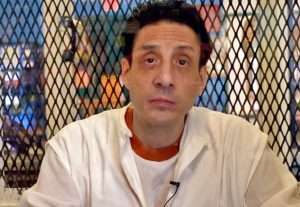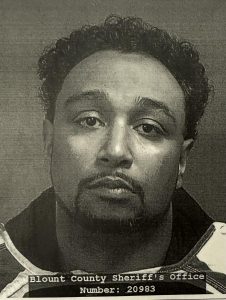A rabbi who was among four people held hostage at a Texas synagogue said Sunday that the British man who held them captive became “increasingly belligerent and threatening” toward the end of the 10-hour standoff.
Rabbi Charlie Cytron-Walker of Congregation Beth Israel, near Fort Worth, credited security training that his congregation has received over the years for helping him and the other hostages get through the situation. He said in a statement that without that instruction, “we would not have been prepared to act and flee when the situation presented itself.”
Also read: Colleyville hostage situation: Joe Biden calls out ‘rise of extremism’
Authorities on Sunday identified the hostage-taker as a 44-year-old British national, Malik Faisal Akram. He was killed after the last three hostages ran from the building and an FBI SWAT team stormed it at around 9 p.m. Saturday. Authorities haven’t said whether Akram was killed by a member of the team.
The FBI said there was no indication that anyone else was involved, but it didn’t provide a possible motive.
Akram could be heard ranting on a Facebook livestream of the services and demanding the release of a Pakistani neuroscientist who was convicted of trying to kill U.S. Army officers in Afghanistan. Speaking to reporters in Philadelphia on Sunday, Biden said Akram allegedly purchased a weapon on the streets and might have been in the U.S. for only a few weeks.
Also read: Donald Trump says babies can be killed after birth in Arizona rally
Video from Dallas TV station WFAA showed people running out a door of the synagogue, and then a man holding a gun opening the same door just seconds later before he turned around and closed it. Moments later, several rounds of gunfire could be heard, followed by the sound of an explosion.
“Rest assured, we are focused,” Biden said. “The attorney general is focused and making sure that we deal with these kinds of acts.”
U.S. Immigration and Customs Enforcement did not immediately respond to questions Sunday about Akram’s immigration status and history. London’s Metropolitan Police said in a statement that its counter-terrorism police were liaising with U.S. authorities about the incident.
Also read: Watch: Trump mocks Biden in Arizona rally, slams handling of COVID
FBI Special Agent in Charge Matt DeSarno said the hostage-taker was specifically focused on an issue not directly connected to the Jewish community, and there was no immediate indication that the man was part of any broader plan. It wasn’t clear why Akram chose the synagogue.
The FBI and police spokeswomen declined to answer questions Saturday night about who shot Akram when the standoff ended.
Law enforcement officials who were not authorized to discuss the ongoing investigation and who spoke to The Associated Press on the condition of anonymity earlier said the hostage-taker demanded the release of Aafia Siddiqui, a Pakistani neuroscientist suspected of having ties to al-Qaida who is in a federal prison in Texas. He also said he wanted to be able to speak with her, according to the officials.
Authorities said police were first called to the synagogue around 11 a.m. and people were evacuated from the surrounding neighborhood soon afterward.
Saturday’s services were being livestreamed on the synagogue’s Facebook page for a time. The Fort Worth Star-Telegram reported that an angry man could be heard ranting and talking about religion at times during the livestream, which didn’t show what was happening inside the synagogue.
Shortly before 2 p.m., the man said, “You got to do something. I don’t want to see this guy dead.” Moments later, the feed cut out. A spokesperson for Meta Platforms Inc., the corporate successor to Facebook Inc., later confirmed that Facebook had removed the video.
Multiple people heard the hostage-taker refer to Siddiqui as his “sister” on the livestream. But John Floyd, board chair for the Houston chapter of the Council on American-Islamic Relations — the nation’s largest Muslim advocacy group — said Siddiqui’s brother, Mohammad Siddiqui, was not involved.
“We want the assailant to know that his actions are wicked and directly undermine those of us who are seeking justice for Dr. Aafia,” said Floyd, who also is legal counsel for Mohammad Siddiqui.
Texas resident Victoria Francis, who said she watched about an hour of the livestream, said she heard the man rant against America and claim he had a bomb. Biden said Sunday that there were apparently no explosives, despite the threats.
“He was just all over the map. He was pretty irritated and the more irritated he got, he’d make more threats, like ‘I’m the guy with the bomb. If you make a mistake, this is all on you.’ And he’d laugh at that,” Francis said. “He was clearly in extreme distress.”
Colleyville, a community of about 26,000 people, is about 15 miles (23 kilometers) northeast of Fort Worth. By Sunday morning, the police perimeter around the synagogue had shrunk to half a block in either direction and FBI agents could be seen going in and out of the building. A sign saying “Love” — with the “o” replaced with a Star of David — was planted in a neighbor’s lawn.
Congregation Beth Israel is led by Rabbi Charlie Cytron-Walker, who was among the four hostages. He declined to speak at length to a reporter outside his home on Sunday, telling an Associated Press reporter: “It’s a little overwhelming as your can imagine. It was not fun yesterday.”
Andrew Marc Paley, a Dallas rabbi who was called to the scene to help families and hostages upon their release, said Cytron-Walker acted as a calm and comforting presence. The first hostage was released shortly after 5 p.m. That was around the time food was delivered to those inside the synagogue, but Paley said he did not know if it was part of the negotiations.
“He appeared a little unfazed, actually, but I don’t know if that was sort of shock or just the moment,” Paley said of the first hostage after his release. “He was calm and grateful to law enforcement and Rabbi Charlie.”
Israeli Prime Minister Naftali Bennett said on Twitter that “this event is a stark reminder that antisemitism is still alive and we must continue to fight it worldwide.”
The standoff led authorities to tighten security in other places, including New York City, where police said that they increased their presence “at key Jewish institutions” out of an abundance of caution.






